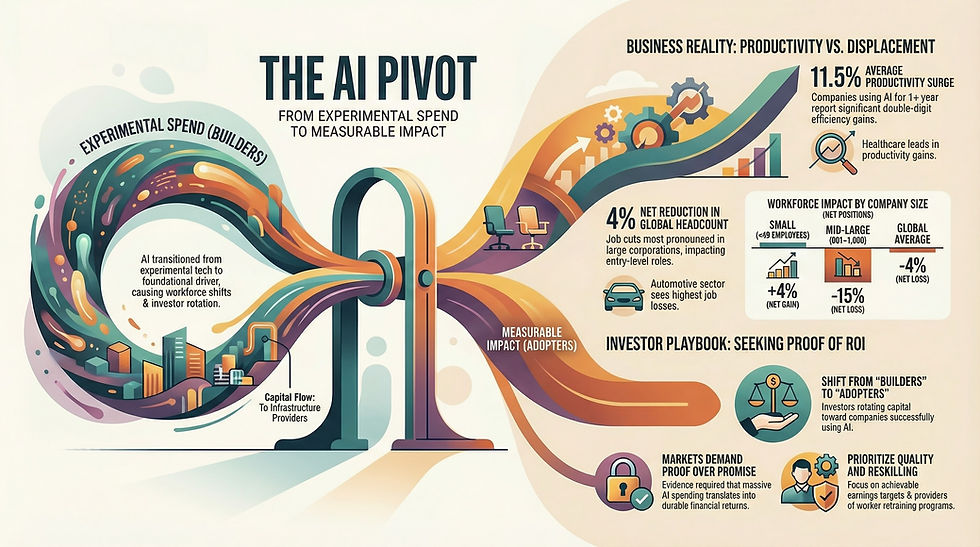Risk Appetite: What Young And Old Investors Are Doing
- Alpesh Patel
- Dec 22, 2021
- 3 min read
The recent “Schroders Global Investor Study 2021” has highlighted some interesting differences between the risk appetite of younger and older investors.

Schroders Global Investor Study 2021 has demonstrated the effects of the pandemic on investing. The most eye-catching finding suggests that 37% of investors are willing to allocate more capital to high-risk investments to beat inflation and COVID uncertainty. This number goes up to 44% for younger investors.
The report also looks at which high-risk asset classes people are investing in. Some of these sectors include cryptocurrency, electric vehicles, and biotech. Worryingly, many of these investors have no experience with these volatile assets.
The survey asked what people would allocate “more” or “much more” of their capital towards in the wake of COVID-19. The answers were:

● 46% on general savings
● 46% of low-risk investment
● 37% on high-risk investment
These numbers were interesting when broken down by demographics.

The percentage of investors who are taking on high-risk assets were:
● Age 18-37: 44%
● Age 38-50: 37%
● Age 51-70: 28%
● Age 71+: 22%
The data shows that younger investors are taking on more risks. However, what is less talked about is that older generations may not be taking on enough risk. The S&P 500 has rebounded almost 100% since the March 2020 crash. Much of these gains were in what would be categorised as high-risk equities, like Tech.
High Expectations
The report shows disparities between young and older investors’ expectations.

Interestingly, 56% of 18-37-year-olds expect their portfolios to return an annual rate of more than 10% over the next five years. This number is roughly similar among the 38-50 bracket.
However, the picture is different for the 51-70 and the 71+ groups. Only 45% and 38% respectively expect 10%+ returns in the same period.
Which Risky Assets are Investors Choosing?

Zero or negative interest rates seem to be forcing younger investors to make riskier plays. Additionally, an uncertain economic outlook appears to be causing some investors to seek out higher returns.
As a result, many investors are entering into sectors for the first time.

The most popular first-time investments are:
● Electric vehicle funds and stocks: 24%
● Bitcoin or Pharmaceuticals stocks or funds: 23%
● Tech or Internet stocks or funds: 22%
● Cryptocurrencies: 22%
Investors by Experience
Other interesting findings from the report were the difference between Beginner, Intermediate, and Expert investors. Incidentally, these categories were self-assigned.

Expert investors put capital into a far more comprehensive range of assets. Across all categories, they were far ahead. On the other hand, beginner investors had far less diversified portfolios. Perhaps this is a sign that they are sticking to investing in what they know? However, a concentrated portfolio with high-risk assets will leave some investors exposed and vulnerable to market swings.
Summary
So, what does all this mean?
Firstly, these findings aren’t exactly shocking. Anyone who has been paying attention over the last few years will have noticed an influx of new investors. Apps like Robinhood and eToro have gamified trading and attracted a new generation of investors.
While much of the media coverage has been relatively negative and played on the inexperience of Reddit and Crypto investors, these criticisms can somewhat miss the point. Yes, the risk is high, but young people must start learning and investing somehow.
Secondly, a sizable majority of people over 50 were happy with yields of 9% or less. Almost 1 in 5 predicted that their investments would earn less than 5%. While older investors can’t often afford to ride out recessions or market pullbacks, the reality is that they are leaving money on the table.

Sign up to www.campaignforamillion.com today

More free resources on www.alpeshpatel.com
Alpesh Patel OBE



Comments